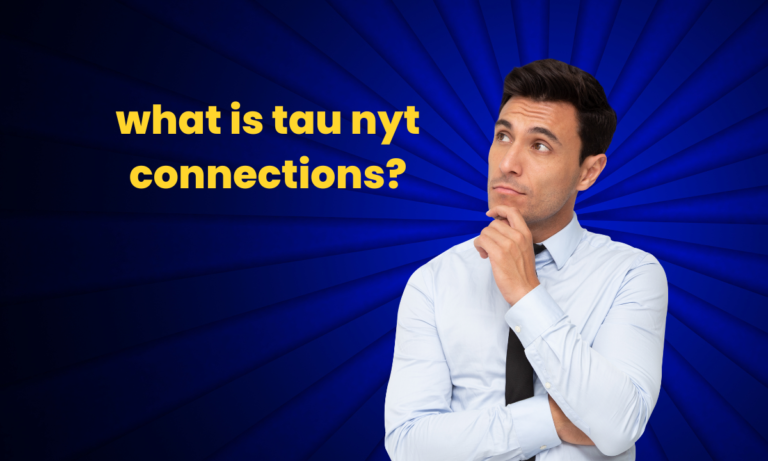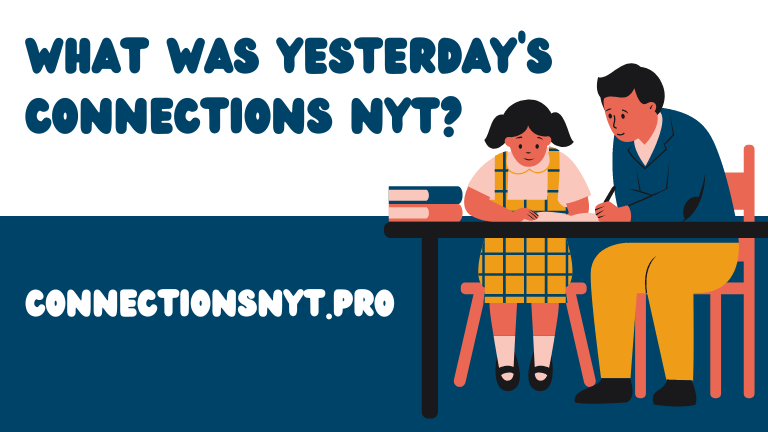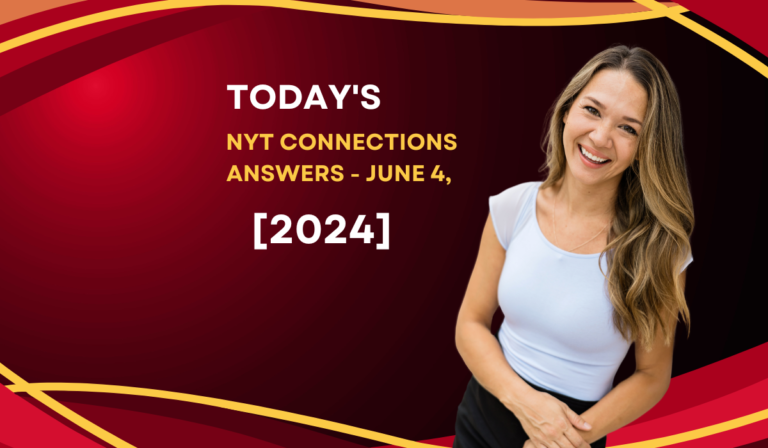NYT Connections Today: See Hints and Answers for June 16, 2024
NYT Connections Today: See Hints and Answers for June 16, 2024.The New York Times Connections puzzle continues to delight and challenge puzzle enthusiasts daily. Today’s puzzle, dated June 16, 2024, promises to be as intriguing as ever. In this article, we will provide you with hints and answers to help you solve the Connections puzzle and improve your puzzle-solving skills. Whether you are a seasoned solver or a curious beginner, this guide will offer valuable insights and strategies.
Understanding the Connections Puzzle
The Connections puzzle is a word association game where solvers must identify relationships between various words or phrases based on clues provided. These connections can be based on synonyms, antonyms, categories, or thematic links. The goal is to connect the words in a meaningful way according to the given hints.
How to Approach the Puzzle
- Scan the Grid: Quickly scan the entire grid to get an overview of the words or phrases presented.
- Identify Obvious Connections: Look for pairs or groups of words that stand out and seem related based on the given categories.
- Use Process of Elimination: If you are unsure about certain connections, eliminate the words that are clearly part of another group.
- Cross-Reference Clues: Match the words with the provided clues to ensure accuracy.
- Double-Check Before Finalizing: Always review your connections to avoid mistakes and ensure they align with the clues.
Today’s Puzzle: June 16, 2024
Grid Layout
The grid for today’s puzzle consists of the following words:
- Paris
- Tokyo
- New York
- Sydney
- Beethoven
- Mozart
- Bach
- Chopin
- Hydrogen
- Oxygen
- Carbon
- Nitrogen
- Basketball
- Soccer
- Baseball
- Tennis
Categories and Clues
The categories and clues for today’s puzzle are:
- Cities: Identify the words that are names of cities.
- Composers: Identify the words that are names of famous composers.
- Elements: Identify the words that are names of chemical elements.
- Sports: Identify the words that are names of sports.
Hints for Solving Today’s Puzzle
Cities
The words in the “Cities” category are typically well-known metropolises that are often mentioned in the news, travel guides, or popular culture.
Composers
For the “Composers” category, think of classical music legends whose works are widely performed and studied in music history.
Elements
The “Elements” category includes basic chemical elements found on the periodic table, essential for various scientific fields.
Sports
The “Sports” category consists of popular athletic activities that are commonly played and watched around the world.
Solving the Puzzle
Let’s solve today’s puzzle step-by-step.
Step 1: Identify the Cities
Based on the clue “Cities,” the words that fit this category are:
- Paris
- Tokyo
- New York
- Sydney
Step 2: Identify the Composers
Next, identify the composers. The words that fit this category are:
- Beethoven
- Mozart
- Bach
- Chopin
Step 3: Identify the Elements
For the elements category, the words are:
- Hydrogen
- Oxygen
- Carbon
- Nitrogen
Step 4: Identify the Sports
Finally, for the sports category, the words are:
- Basketball
- Soccer
- Baseball
- Tennis
Confirming the Connections
To ensure accuracy, double-check each word to make sure it fits its respective category. Use external references if needed to verify any uncertainties. Cross-reference your answers with the clues to ensure they are correct and make sense within the context of the puzzle.
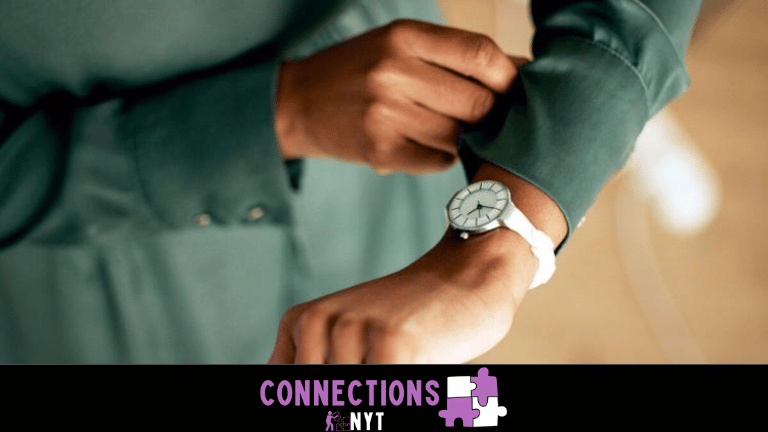
Benefits of Solving the Connections Puzzle
Solving the Connections puzzle offers several cognitive and emotional benefits:
Cognitive Benefits
- Enhances Memory: Regularly solving puzzles helps improve memory by reinforcing word associations and recall.
- Boosts Problem-Solving Skills: Puzzles challenge your problem-solving abilities and encourage creative thinking.
- Improves Concentration: Focusing on the puzzle improves your attention to detail and concentration.
Emotional Benefits
- Reduces Stress: Engaging in puzzles provides a relaxing and stress-relieving activity.
- Provides a Sense of Accomplishment: Successfully solving a puzzle gives you a sense of achievement and boosts your confidence.
- Encourages Mindfulness: The process of solving puzzles helps you stay present and mindful, promoting mental well-being.
Tips for Mastering the Connections Puzzle
Practice Regularly
Regular practice is key to mastering the Connections puzzle. The more you solve, the better you’ll become at recognizing patterns and making connections quickly.
Expand Your Vocabulary
A broad vocabulary enhances your ability to identify connections. Read widely, use a thesaurus, and engage in other word games to expand your word knowledge.
Stay Informed
Keeping up with current events and popular culture can provide context for solving puzzles. The Connections puzzle often includes words or phrases related to recent trends or widely known topics.
Collaborate with Others
Solving puzzles with friends or family can be a fun and effective way to enhance your skills. Collaboration allows you to share different perspectives and combine your knowledge.
Common Pitfalls and How to Avoid Them
Overthinking Connections
One common pitfall in solving the Connections puzzle is overthinking the connections. Sometimes, the most straightforward connections are the correct ones. Trust your instincts and avoid complicating the puzzle unnecessarily.
Misinterpreting Clues
Misinterpreting the given clues can lead to incorrect connections. Carefully read and interpret the clues provided with the puzzle. If a clue seems ambiguous, consider all possible interpretations and use the process of elimination to narrow down the options.
Ignoring Obvious Patterns
Solvers sometimes overlook obvious patterns in their quest to find complex connections. It’s important to recognize and trust the patterns you observe. For example, if you see names of well-known cities, it’s likely they belong to the “Cities” category.
Advanced Techniques for Experienced Solvers
Identifying Thematic Elements
Experienced solvers often look for overarching themes that can link multiple words or phrases. Identifying these themes early can provide a significant advantage. For example, recognizing that the puzzle’s theme revolves around major world cities can help you quickly categorize words like “Paris,” “Tokyo,” “New York,” and “Sydney.”
Using Memory Aids
Memory aids such as mnemonics can be extremely useful in recalling word associations and connections. For example, using a mnemonic to remember the sequence of classical composers or chemical elements can help you quickly identify the correct categories in the puzzle.
Practicing with Varied Puzzle Types
Exposing yourself to a variety of puzzle types can improve your overall puzzle-solving skills. Puzzles like crosswords, anagrams, and logic puzzles all require different types of thinking and problem-solving skills, which can be beneficial when tackling the Connections puzzle.
Conclusion and Final Thoughts
The Connections puzzle in The New York Times is more than just a daily brain teaser; it is a mental exercise that offers cognitive, emotional, and social benefits. By understanding the puzzle’s structure, developing effective strategies, and engaging with the puzzle-solving community, you can enhance your skills and derive greater enjoyment from this daily challenge.
Today’s puzzle, dated June 16, 2024, provided a delightful mix of categories, testing our ability to identify connections and think creatively. From identifying cities like “Paris,” “Tokyo,” “New York,” and “Sydney,” to categorizing composers such as “Beethoven,” “Mozart,” “Bach,” and “Chopin,” and recognizing elements like “Hydrogen,” “Oxygen,” “Carbon,” and “Nitrogen,” to naming sports like “Basketball,” “Soccer,” “Baseball,” and “Tennis,” each connection offered a unique challenge and learning opportunity.
Whether you are a casual solver or a dedicated enthusiast, the journey of puzzle solving offers endless possibilities for learning, growth, and satisfaction. Keep practicing, stay curious, and enjoy the mental adventure that puzzles provide. Happy puzzling!
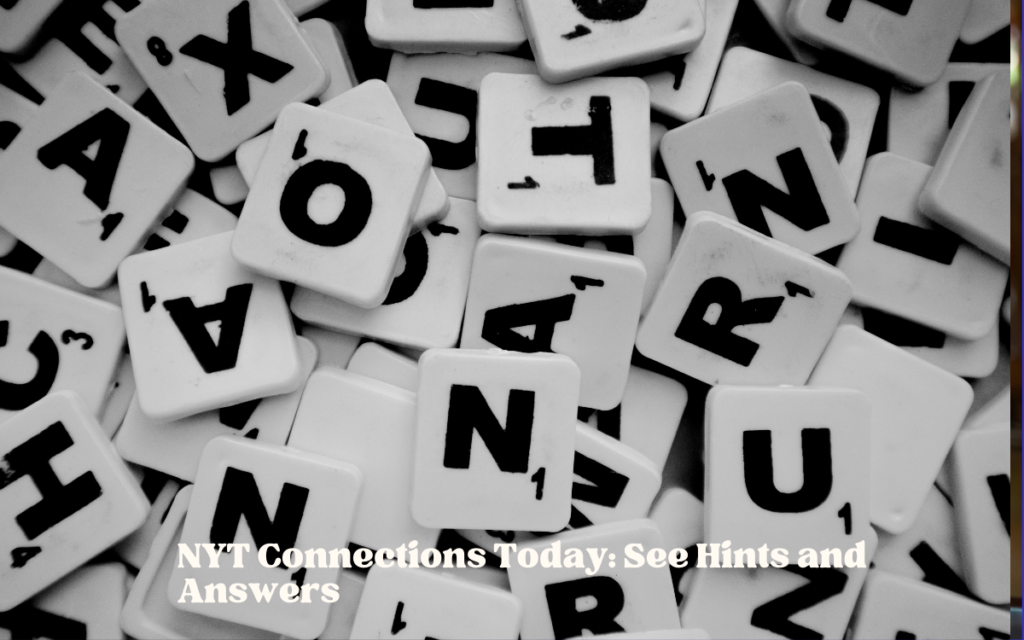
FAQs
What is the NYT Connections puzzle?
The NYT Connections puzzle is a word association game where solvers identify relationships between words or phrases based on provided clues. The goal is to connect words that share common themes, categories, or other logical links.
How do I start solving today’s Connections puzzle?
Begin by scanning the grid to get an overview of the words. Identify the most obvious connections first, such as grouping well-known cities or famous composers, and then use the clues to confirm and refine your answers.
What are the categories for the June 16, 2024, Connections puzzle?
Today’s categories are Cities, Composers, Elements, and Sports. Each category includes four related words, such as Paris for Cities and Beethoven for Composers.
What are the answers for the June 16, 2024, puzzle?
The answers are: Cities – Paris, Tokyo, New York, Sydney; Composers – Beethoven, Mozart, Bach, Chopin; Elements – Hydrogen, Oxygen, Carbon, Nitrogen; Sports – Basketball, Soccer, Baseball, Tennis.
What strategies can help me solve the puzzle more efficiently?
Develop a systematic approach by categorizing words and prioritizing obvious connections. Enhance your vocabulary, practice lateral thinking, and use process of elimination to narrow down possibilities.
Are there any tips for avoiding common mistakes in the Connections puzzle?
To avoid common mistakes, do not overthink connections, carefully interpret the clues, and trust obvious patterns. Double-check your answers to ensure they fit within the given categories.
How can I verify my answers in the puzzle?
Verify your answers by cross-referencing each word with the provided clues and ensuring it fits the respective category. Use external references or logical reasoning if you encounter any doubts.
Are there communities or resources to help with the Connections puzzle?
Yes, online communities such as Reddit and various social media groups are great places to connect with other NYT puzzle solvers. These platforms offer tips, strategies, and discussions about solving puzzles.
What are the cognitive benefits of solving the Connections puzzle?
Solving the Connections puzzle enhances memory, improves problem-solving skills, and boosts concentration. It also encourages mindfulness and provides a mental workout that keeps the brain sharp.
How does solving puzzles like Connections reduce stress?
Engaging in puzzles provides a relaxing and enjoyable activity that helps distract from daily stressors. Successfully solving puzzles offers a sense of accomplishment, which can boost mood and reduce anxiety.

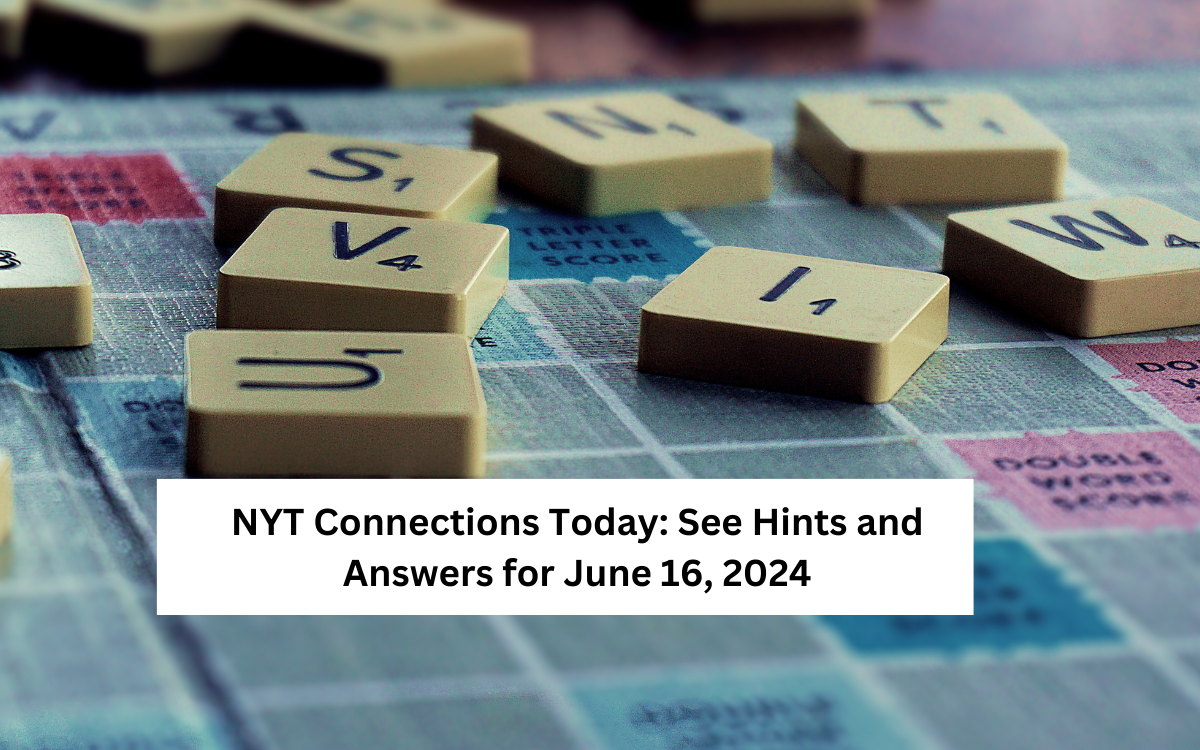
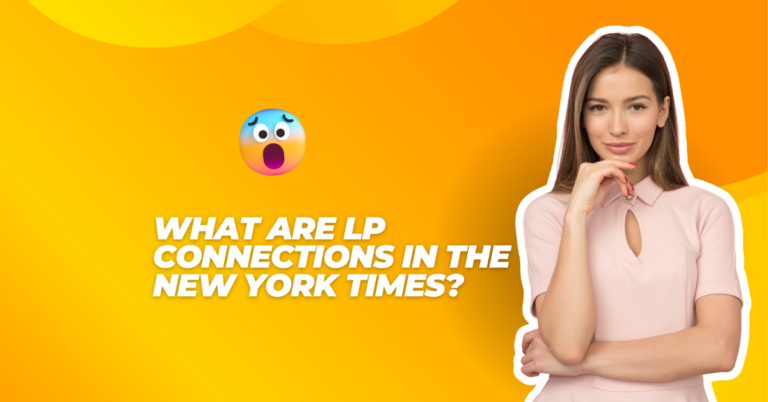
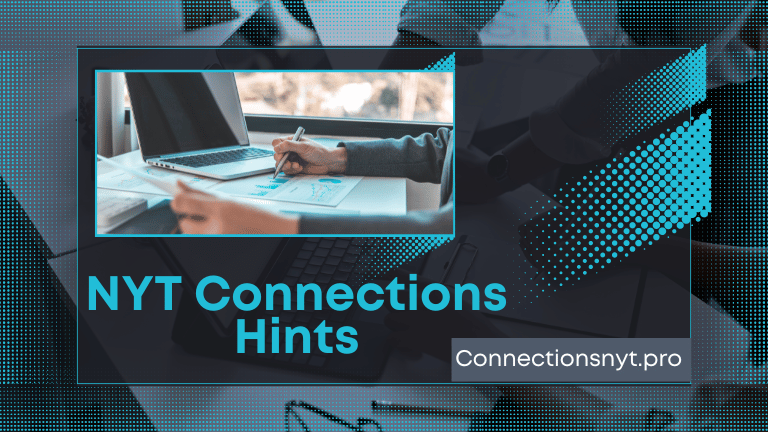
![Connections Game NYT for Kids – Play Online Free [2024]](https://connectionsnyt.pro/wp-content/uploads/2024/06/Connections-NYT-Ranked-Best-Educational-Game-For-2024-23-768x480.png)
